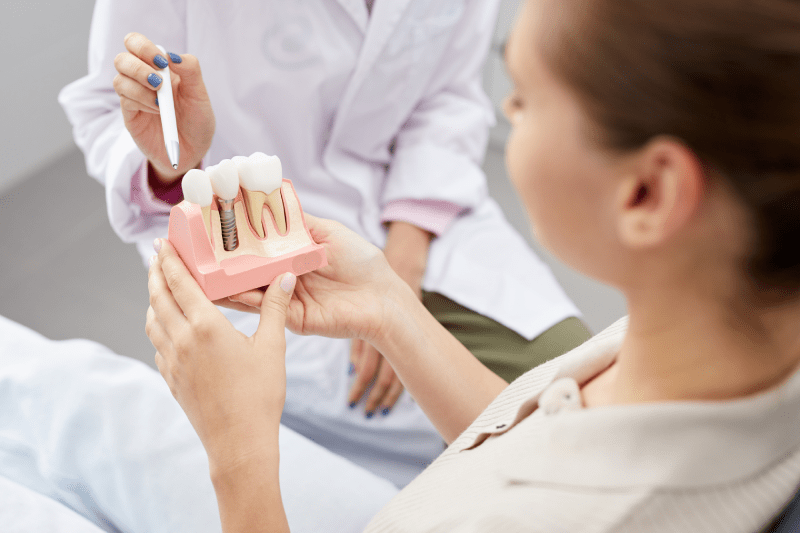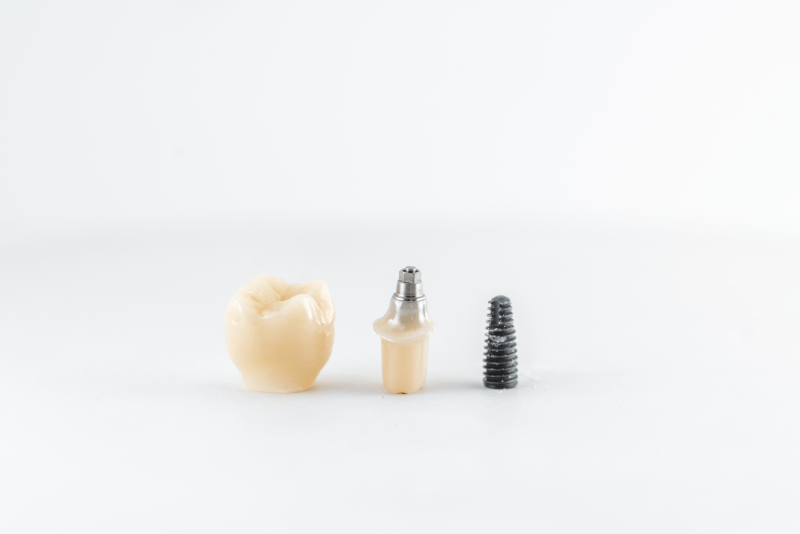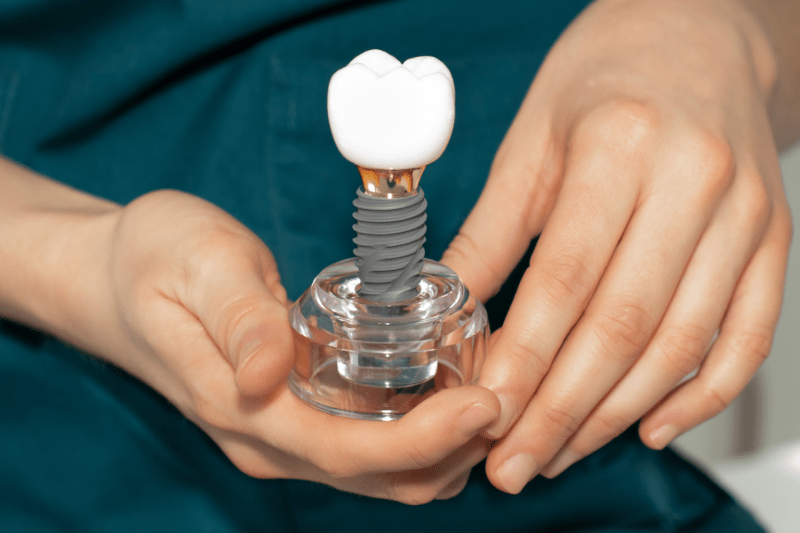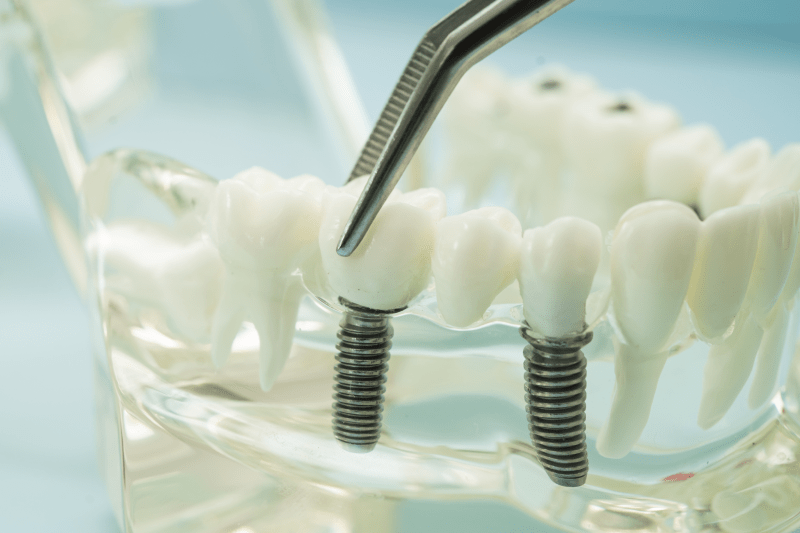Why Is Kusadasi Preferred For Dental Implant Treatment?
Kusadasi stands out in dental tourism not only for the natural beauty of the Aegean region but also because it offers high-quality dentistry services at European standards, yet at much more affordable costs. Clinics in the city invest in modern technology and work with expert teams who possess international experience. Patients have the opportunity to combine their treatment process with a holiday experience; this makes the long and sometimes stressful implant procedures much more comfortable. Furthermore, its geographical location and ease of access serve as a major attraction for patients coming from abroad. The combination of these advantages makes Kusadasi an appealing option for those seeking full mouth implant treatment.
What Is Full Mouth Implant And Who Is It Suitable For?
A full mouth implant is the application of a permanent and fixed prosthesis by placing a specific number of implants in both the upper and lower jaws of patients who have lost all their teeth or whose remaining teeth must be extracted. This treatment is ideal for individuals who do not wish to use traditional removable dentures, or who are uncomfortable with their dentures shifting or having difficulty chewing. For a successful full mouth implant, it is important that the patient has sufficient bone density and does not have uncontrolled chronic diseases (such as uncontrolled diabetes). The primary goal of the application is to ensure the patient achieves performance closest to their natural teeth, both aesthetically and functionally.
What Is The Total Cost Of Implant Treatment In Kusadasi?
The total cost of full mouth implant treatment in Kusadasi varies depending on the number of implants to be used (such as All-On-4, All-On-6), the brand of the implants (Swiss, German, local), the type of final prosthesis to be applied (Zirconium, Porcelain), and additional surgical procedures (bone grafting, sinus lifting). Treatment packages usually include services such as the operation, implants, prostheses, temporary teeth, panoramic X-rays, medication, and transfers. Thanks to competitive pricing and low general operating costs in Turkey, the same quality treatment is generally offered at prices 50% to 70% more affordable compared to Western European countries.
Why Are Implant Prices More Economical Compared To Europe?
The main reasons why implant prices are more economical in Turkey, particularly in health tourism hubs like Kusadasi, are low general operating costs, lower personnel expenses, and the exchange rate advantage. Although the clinics use high-quality European-made implant brands, laboratory and clinical operating expenses are much lower than in Western countries. Furthermore, the Turkish Republic’s policies supporting health tourism and intense competition in this field ensure that prices remain competitive. The crucial point is that quality is not compromised despite the lower price, and services are provided at international standards.
How Many Stages And Processes Does Full Mouth Implant Treatment Consist Of?
Full mouth implant treatment is a long-term process that generally requires two main stages and several visits. The First Stage includes diagnosis (radiography, tomography), tooth extraction (if necessary), and the placement of implants into the jawbone. Following this stage, there is a 3 to 6-month waiting period (healing period) for the implants to fuse with the bone. The Second Stage involves the fabrication, fitting, and permanent fixation of the final prostheses (bridges) onto the implants. If the patient’s bone structure is suitable, this period can sometimes be accelerated, but the general protocol requires these two stages.
What Factors Affect The Implant Success Rate?
The success rate of implant treatment remains above 95%, depending on many factors, but some factors can negatively impact this rate. The most critical factors include the patient’s attention to oral hygiene, cessation of smoking and alcohol consumption, and control of chronic diseases (especially diabetes). Additionally, the experience of the surgical team performing the operation, the brand and quality of the implant used, and the quality and quantity of the jawbone where the implant is placed are also determining factors in success. For a successful outcome, the patient must strictly adhere to instructions and not miss regular check-ups with the dentist.

What Is The Difference Between All-On-4 And All-On-6 Systems?
All-On-4 and All-On-6 are treatment concepts that refer to the number of implants placed in the jaw in cases of complete edentulism. All-On-4 involves placing a fixed prosthesis on four dental implants and is generally preferred for the lower jaws with sufficient bone density. All-On-6, on the other hand, provides greater support and stability using six implants; this system offers a more reliable solution, especially for upper jaw applications where bone quality might be slightly weaker or more support is desired. In both systems, implants are placed at an angle to maximize bone utilization; however, the amount of bone and the patient’s condition determine which system will be applied.
What Preparations Should Be Made Before Starting Treatment?
Before starting implant treatment, a comprehensive preparation period is necessary for the process to proceed successfully and without risk. These preparations begin with a detailed radiographic examination (panoramic X-ray and dental tomography). Full information must be obtained about the patient’s chronic illnesses, regularly used medications (especially blood thinners), and allergies. If there are existing gum diseases or decay that require treatment, they must be treated before the implant procedure. Patients are generally asked to stop smoking and alcohol consumption at least one week before the operation, as these habits negatively affect the healing process and implant integration.
Is Dental Implant Surgery A Painful Procedure?
Contrary to popular belief, dental implant surgery is performed under local anesthesia, so the patient generally does not feel any pain. The area where the local anesthesia is applied becomes completely numb, and the patient may only feel minimal pressure or vibration. It is normal to feel slight pain after the operation when the anesthesia wears off, but this pain is easily controlled with simple painkillers prescribed by the expert team. The discomfort experienced during these first few days is usually no more severe than the pain experienced after a tooth extraction. Patient comfort is maintained at a high level with the correct use of medication and cold compress applications.
What Types Of Anesthesia Are Used During The Operation?
The most common and safe type of anesthesia used in dental implant operations is local anesthesia. Local anesthesia numbs only the area to be operated on, and the patient remains conscious. This allows the patient to communicate with the dentist and relax comfortably during the procedure. However, for patients with dental phobia (dentophobia) or during long, complex operations, conscious sedation may be used to increase patient comfort. Sedation allows the patient to enter a state of deep relaxation, but they are not fully asleep. The appropriate type of anesthesia is decided upon after evaluating the patient’s health status and the scope of the operation.
What Procedures Are Performed During The First Visit?
During the first visit to Kusadasi for full mouth implant treatment, the diagnosis and planning processes are usually completed. This visit includes a detailed physical examination, panoramic X-ray, and 3D dental tomography (CBCT) scans. The dentist uses this data to determine the volume, quality of the jawbone, and the most suitable positions for the implants. If necessary, any teeth that need to be extracted can be removed during this first visit. The implant placement surgery is also generally planned and performed during the first visit. Patients must allocate sufficient time for both extraction and implant placement surgery during this initial visit.
Can Temporary Teeth Be Used During The Treatment Process?
Yes, during the full mouth implant treatment, temporary teeth are definitely used to meet the aesthetic and functional needs of the patients while waiting for the implants to fuse with the bone (osseointegration). These temporary prostheses are specially designed not to put pressure on the implants and are usually placed on the same day as the implant operation. This ensures the patient does not remain toothless during the waiting period. Temporary teeth fulfill the chewing function, albeit limitedly, and allow the patient to continue their social life smoothly. However, care must be taken to use these teeth only with soft foods and to avoid excessive load on the implants.
How Many Times Is It Necessary To Visit Kusadasi For Implant Treatment?
Full mouth implant treatment generally requires at least two separate visits. The First visit is necessary for the placement of the implants and the temporary teeth; this visit can last from 3 to 7 days. After this stage, there is a waiting period (3 to 6 months) for the implants to fuse with the bone. The Second visit is for the preparation, trial fitting, and permanent fixation of the final prostheses (zirconium or porcelain); this visit also usually lasts 7 to 10 days. Rarely, a third short visit or a longer stay during the first visit may be necessary if additional surgical procedures (such as bone grafting) are required.
How Long Is The Waiting Period Between Visits?
The waiting period between visits to Kusadasi for implant treatment depends on the osseointegration process, which is necessary for the implants to fully fuse with the jawbone. This period generally varies between 3 to 6 months, depending on the patient’s bone quality and density. The oral surgeon decides to proceed to the second stage after checking the stability of the implants. If additional surgical procedures like bone grafting or sinus lifting have been performed, this waiting period may extend up to 6 months. During this time, patients can continue their normal lives by using their temporary teeth.
What Is The Recovery Process Like After Implant Application?
The first few days after implant application are the most critical stage of the recovery process. Slight bleeding, swelling, and sensitivity are considered normal during the first 24 hours. Swelling usually peaks after 2-3 days and subsides within a week. Patients must regularly use the prescribed medications, apply cold compresses, and consume only soft and lukewarm foods for the first few days. Implant stitches (if any) are usually removed after one week. The fusion of the implant with the bone (long-term healing) takes 3 to 6 months, as mentioned above; maximum attention must be paid to oral hygiene during this period.
Is Swelling And Bruising Normal After Surgery?
Yes, in dental implant surgeries, especially in full mouth cases where multiple implants are placed, swelling (edema) and slight bruising after surgery are quite normal and do not require concern. Swelling is the body’s natural response to surgical trauma and usually peaks within 48 to 72 hours following the operation. Cold compresses (ice pack) applied regularly and correctly during the first few days are very effective in controlling the swelling. Bruises usually turn yellowish after a few days and completely disappear within a week. These symptoms are a natural part of the healing process and should be waited out patiently.
What Is The Lifespan Of Implants And How Should They Be Cared For?
Dental implants, thanks to being made of titanium and fusing with the bone, are permanent solutions that can be used for life when cared for properly. The longevity of implants largely depends on the patient’s diligence in daily oral hygiene. Implants, just like natural teeth, should be cleaned with regular brushing (at least twice a day), dental floss, and interdental brushes or super floss specially designed to clean under implant bridges. Furthermore, having dental check-ups and professional cleanings at least twice a year is vital for maintaining the health of the gum tissue around the implant.

How Does Smoking And Alcohol Affect Implant Success?
Smoking and alcohol are among the biggest risk factors that negatively affect the success and longevity of implant treatment. Smoking, due to the nicotine it contains, slows down blood circulation in the mouth, which inhibits the flow of oxygen and nutrients necessary for the implants to fuse properly with the jawbone (osseointegration). This significantly increases the risk of implant loss. Alcohol, on the other hand, can slow down wound healing and interact with medications prescribed after the operation. Therefore, it is mandatory to completely quit or minimize smoking and alcohol consumption for at least one week before and for 3 months after the operation.
Can Implants Be Done For Patients With Bone Loss?
Yes, implants can be successfully performed on patients with bone loss (bone resorption) today, but this may require additional surgical procedures. In patients without sufficient bone volume or height, bone grafting (bone augmentation) procedures are applied before implant placement. In this procedure, bone volume is increased in the area where the implant will be placed using bone substitutes, known as bone powder, obtained from the patient’s own body, animal, or synthetic sources. These additional procedures can extend the treatment process up to 6 months but are necessary for successful implantation. Thanks to evolving techniques, bone loss is no longer an insurmountable obstacle to implant treatment.
What Is Bone Powder Or Grafting Procedure?
Bone grafting is a surgical procedure applied in cases where the jawbone is insufficient to allow for stable placement of the implant. In this procedure, biological materials called bone powder are used to increase the bone volume around the implant. Bone powder can be the patient’s own bone (autograft), animal-derived (xenograft), or synthetic (alloplast). The applied graft gradually transforms into the patient’s own bone, creating sufficient bone structure to support the implant. This procedure can usually be done in the same session as implant placement, or in cases of large-volume loss, it may require a separate session and up to 6 months of healing time.
Is A Sinus Lifting Procedure Necessary?
Sinus lifting (sinus augmentation) is a surgical procedure usually required when the bone height available for implant placement in the posterior upper jaw is insufficient due to proximity to the sinus cavity. In this procedure, the sinus membrane is gently lifted upwards, and bone grafting (bone powder) material is placed into the resulting space. This creates sufficient bone volume to safely place the implant. Sinus lifting can be performed using two different techniques (open or closed), depending on the degree of jawbone loss. This additional surgical procedure is vital for the long-term success of the implants and is a factor that affects the duration of the treatment.
How Does Implant Brand Or Quality Change The Price?
Implant brand and quality are one of the most important factors directly affecting the total cost of full mouth treatment. Globally recognized and proven premium brands of Swiss, German, or American origin are generally higher priced due to their research, development, and clinical success data. More affordable local or Korean brands can also provide good results, but their long-term guarantees and clinical history may be more limited compared to premium brands. Clinics in Kusadasi generally offer a variety of brands to suit different budgets and expectations. The price difference is usually based on the implant’s surface technology, biocompatibility, and longevity guarantee.
What Are The Accommodation And Transfer Opportunities During The Treatment Process?
Dental centers in Kusadasi often offer comprehensive treatment packages to ensure the comfort of international patients. These packages generally include quality hotel accommodation for the duration required for the treatment and all transfers between the airport, hotel, and clinic. Patients can focus entirely on their treatment and rest without having to deal with their own transportation and accommodation arrangements. These transfer services are usually provided with private cars or comfortable VIP minibusses. To overcome the language barrier, having an interpreter who speaks the patient’s native language accompany them throughout the process is also a standard service.
What Certifications Do Dental Centers In Kusadasi Hold?
Reputable dental centers and clinics offering dental implant treatment in Kusadasi generally hold international accreditations and certifications. These certifications include local and international standards such as ISO 9001 (Quality Management System), Medical Device Directive (MDD) compliance, and Turkish Dental Association (TDB) membership. Furthermore, some centers may hold the highest quality documents in health tourism, such as JCI (Joint Commission International), specifically for foreign patients. These certifications indicate that the clinics meet certain standards regarding hygiene, quality of treatment, and patient safety, and are an important criterion in patient selection.
In Which Cases Cannot Full Mouth Implants Be Performed?
Although full mouth implant treatment is generally very successful, in some situations, this procedure cannot be performed or must be postponed. Conditions such as uncontrolled severe diabetes, serious heart and vascular diseases, recent radiotherapy or chemotherapy treatment, and the use of certain bone loss medications may constitute absolute contraindications. Furthermore, active gum infections or inadequate oral hygiene are temporary obstacles to implantation. One of the most important limiting factors is insufficient jawbone volume; however, this can usually be resolved with bone grafting. The suitability of the treatment is determined by a comprehensive health history and blood tests.
What Are The Implant Supported Prosthesis Options?
In full mouth implant treatment, there are two main prosthesis options fixed onto the implants: fixed prostheses and removable prostheses. Fixed prostheses (bridges) are the most comfortable solution, feeling like the patient’s own teeth and can only be removed by the dentist. Removable prostheses (though implant-supported) do not offer the full comfort of fixed prostheses but are much more stable and comfortable than traditional dentures and can be removed by the patient for cleaning. The number of implants and the patient’s budget determine which type of prosthesis (fully fixed, hybrid, or locator-supported) will be chosen. Fixed prostheses are generally made of zirconium or metal-supported porcelain.
Should Porcelain Or Zirconium Be Preferred?
The most common materials used for implant-supported prostheses are porcelain and zirconium. Zirconium has been accepted as a superior option in recent years due to its natural appearance, light transmission, and durability. Zirconium-based prostheses, as they do not contain metal, prevent the formation of a dark line on the gums and offer aesthetic results very close to natural teeth. Traditional metal-supported porcelains may be more cost-effective but are not as aesthetically successful as zirconium. Zirconium is recommended for front teeth and situations where aesthetics are paramount, while porcelain may be preferred in posterior regions or when there are budget constraints.
How Should Nutrition Be After Implant Treatment?
Nutrition after implant treatment is vital for the success of the healing process. For the first 48 hours, only liquid and lukewarm foods (soup, yogurt, puree) that are not too cold should be consumed. Soft foods can be introduced during the first week (boiled vegetables, omelets, fish). Very hard, sticky, or hot food and drinks should be strictly avoided during this period. Until the implants have fused with the bone (3-6 months), it is important to avoid chewing extremely hard foods (nuts, hard-shelled fruits) and to distribute the chewing force evenly. Once the final prostheses are placed, the patient can return to a normal diet.
Do Implants Harm Gum Tissue?
Correctly planned and expertly placed dental implants do not cause permanent harm to the gum tissue; on the contrary, they indirectly support gum health by preventing jawbone resorption caused by tooth loss. Since implants are made of titanium, they are biocompatible and are not rejected by the body. However, poor oral hygiene can lead to inflammation of the gums around the implant (peri-mucositis) and, at advanced stages, to bone loss around the implant (peri-implantitis). Therefore, regular and correct cleaning of the area around the implants is a fundamental condition for maintaining gum health.

What Tests Are Required Before Starting Treatment?
Various blood tests are mandatory before starting implant treatment to evaluate the patient’s general health status. These tests generally include a complete blood count, bleeding and clotting time, blood sugar levels (especially HbA1c for those at risk of diabetes), liver and kidney function tests, and screening for infectious diseases such as Hepatitis B, C, and HIV. These tests help pre-identify the risks of bleeding or healing problems that may occur during or after the operation, and necessary precautions are taken to ensure the patient’s safety is maximized.
Is There A Translator Service For Patients From Abroad?
Yes, most dental centers in Kusadasi focused on health tourism offer professional translation services for international patients. This service is provided to ensure the patient can communicate effectively with the dentist and other clinic staff at every stage of the treatment (initial consultation, operation, post-operative instructions). Translators are usually individuals who speak the patient’s native language (English, German, Dutch, etc.) and are proficient in medical terminology. Eliminating the language barrier is critical for the patient to feel secure and to be fully informed about the treatment.
How Is The Risk Of Infection Reduced In Implant Treatment?
To reduce the risk of infection in implant treatment, the implementation of the highest standards of hygiene and sterilization in clinics and during the operation is a fundamental requirement. Surgeries must be performed in a sterile environment using single-use materials and appropriate surgical protocols. On the patient’s side, starting antibiotic use as advised by the doctor before the operation and regularly taking the prescribed medications afterward is important. Furthermore, the patient’s maximum attention to oral hygiene during the first week and using the provided antiseptic mouthwash as instructed reduces the risk of infection to almost zero.
Will There Be A Change In Speech After Implants Are Placed?
Since implants and the permanent prostheses placed on them replace natural teeth, it is possible to experience a temporary and slight change in speech initially, but this condition is not permanent. Especially with full mouth prostheses, the tongue needs a short period to adapt to the new prostheses. Patients may initially have difficulty pronouncing some sounds (especially letters like “s” and “sh”) for the first few days. This condition usually corrects completely within a few weeks as the adjustment period progresses. Reading aloud or practicing speech exercises is recommended to speed up this adaptation.
How Often Should Dental Check-Ups Be Done After Implants?
Dental check-ups after implant surgery are vital for the longevity of the implants and the maintenance of oral health. The first check-up is usually done one week after the implant placement to remove stitches and check healing. Subsequently, a check-up may be required at 3 months to monitor the implants’ fusion with the bone. After the permanent prostheses are placed, patients are required to attend routine dental check-ups at least twice a year (every six months). During these routine check-ups, the gums around the implant are examined, professional cleaning is performed, and the wear status of the prostheses is checked.
What Is Included And Excluded In The Treatment Package?
Full mouth implant treatment packages offered in Kusadasi generally include comprehensive services, but the content of the package may vary from clinic to clinic. Typically included services are: implants, permanent prostheses (porcelain/zirconium), temporary teeth, all surgical procedures (implantation, extraction), radiological examinations (panoramic, CBCT), all transfers, and hotel accommodation. Items usually excluded are: the cost of additional surgical procedures such as bone grafting or sinus lifting (these are sometimes charged separately), international flight tickets, and personal expenses. It is crucial to clarify all items that might incur extra charges when receiving a quote.



